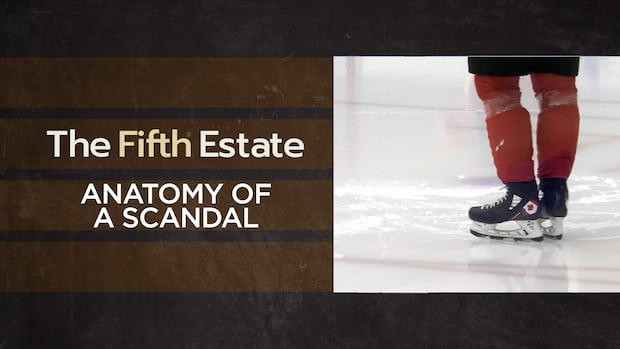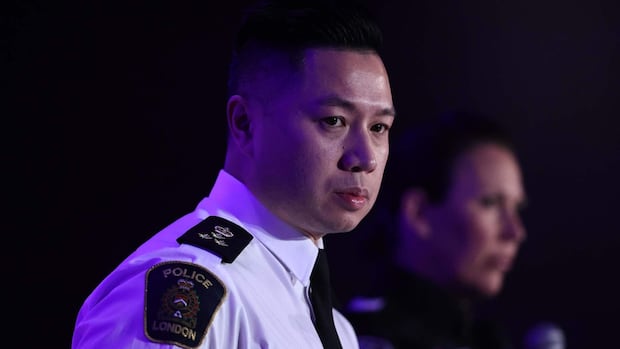WARNING: This article may affect those who have experienced sexual violence or know someone who’s been impacted by it.
Jury selection is set to begin today in the trial of five former NHL players accused of sexually assaulting a woman at a hotel in London, Ont., after a gala celebrating Canada’s world junior hockey win in 2018.
Michael McLeod, Cal Foote, Dillon Dubé, Carter Hart and Alex Formenton are charged with one count each of sexual assault and will be at the Superior Court proceedings. They’re expected to plead not guilty. McLeod faces an additional count of being party to the offence.
The trial, expected to last eight weeks, is a culmination of a years-long process that included a civil lawsuit, parliamentary hearings about how Hockey Canada handled the original allegations and investigation, and a reckoning with what some called a toxic culture in the game.
Justice Maria Carroccia is presiding over the trial. Each player has his own team of lawyers and they’ll have an opportunity to cross-examine the woman, whose identity is protected by a publication ban. In court proceedings, she’s been known as E.M.
There is international interest in the case because of the high-profile players involved. All five members of the 2018 team went on to play pro hockey.
McLeod and Foote were with the New Jersey Devils, Dubé was with the Calgary Flames and Hart was with the Philadelphia Flyers. Formenton was signed by the Ottawa Senators but was playing in Switzerland when the sexual assault charges were announced.
Hockey Canada is on the defensive over allegations that some members of its gold-medal winning World Junior team in 2018 took part in a group sexual assault, and the organization didn’t do enough to hold players accountable. The Fifth Estate examines the national shame inside Canada’s game, and the disturbing history that suggests this was not an isolated incident.
Foote and Hart aren’t currently playing hockey, but McLeod and Dubé have been playing with Kontinental Hockey League (KHL) teams. Formenton has indicated he has left hockey and is working in construction in Barrie, Ont.
‘Tough weeks’ for woman in case
The woman first went to police in 2018 immediately following the alleged incident.
“We’re feeling very deeply for the young woman at the centre of this case, knowing that what she is about to go through is going to be really difficult,” said Jessie Rodger, the head of Anova, a London, Ont.,-based agency for survivors of gender-based violence.
“We’re thinking of her and being grateful for what she’s done so far and being supportive of whatever she does moving forward.”
The Supreme Court of Canada has consistently asked the legal system to treat complainants with respect and dignity, said Daphne Gilbert, a University of Ottawa law professor who specializes in sexual violence.
“There’s been a significant move to make the process less adversarial for complainants, to recognize the trauma that comes from having to testify in court,” Gilbert said.
“This is going to be a really tough case for the complainant because there’s five accused persons and each of them has their own lawyer, and each of those lawyers has the right to cross-examine her to the fullest extent. It’s going to be a tough few weeks for her because she’s going to face a barrage of extremely talented lawyers who are all going to be motivated to poke at her credibility.”
London police investigated the woman’s allegations and closed the case in 2019. In April 2022, the woman filed a $3.5-million lawsuit, which was settled out of court partially using a Hockey Canada reserve fund allocated for such settlements.
After media reports in 2022, London police launched a review of the case and how officers handled the investigation. In 2024, police charged the five players and Chief Thai Truong apologized to the complainant.
‘Historic moment’ for hockey
The trial will be followed by legal experts as well as those in the hockey community and regular Canadians, said Walter DeKeseredy, a sociologist at West Virginia University who researches violence. He co-authored the book On Thin Ice: Professional Hockey, Rape Culture and Violence Against Women.
“This is a historic moment,” he said, referring to the accusations dating back to when the players were juniors and the fact they went on to turn pro. “It’s a very historic moment in the history of Canadian sport and in the history of the Canadian criminal justice system.”
Parents of children who play hockey will also be watching, DeKeseredy added. “All eyes are going to be on this.”
There are clear legal rules in Canada about how consent is defined, and that will likely play a large role in this trial, legal experts told CBC News.
“There’s no such thing as implied consent in Canada. You need consent to be ongoing. You can’t give consent broadly in advance,” said Kat Owens, a lawyer and project director at the Women’s Legal Education and Action Fund. “Courts can’t rely on myths and stereotypes.”
London, Ont., police Chief Thai Truong apologized to the alleged victim and her family for taking years to lay sexual assault charges against five former Canadian world junior hockey team players.
Also at stake is the perception of how the complaint is treated in the criminal justice system, said Gilbert.
“If there’s a perception that it wasn’t worth it for her to have brought this case, that she didn’t get to present her side of the story or that she was shamed or humiliated, I think that could have real negative repercussions going forward, because the case is so high profile.”
Those who work with sexual assault survivors say they’re bracing for people to reach out for help, as happened during the MeToo movement.
“We’re definitely preparing to see an increase in phone calls to our crisis and support line, not just from folks who have perhaps experienced sexual violence currently, but also those who have experienced sexual violence in past,” Rodger said. “I want people to know that our crisis and support line is for people who are in crisis but also for people who have experienced historic sexual assault and violence, for people who need somebody to talk to for 15 minutes.”
If you’re in immediate danger or fear for your safety or that of others around you, please call 911. For support in your area, you can look for crisis lines and local services via the Ending Violence Association of Canada database.
This post was originally published on this site be sure to check out more of their content.









